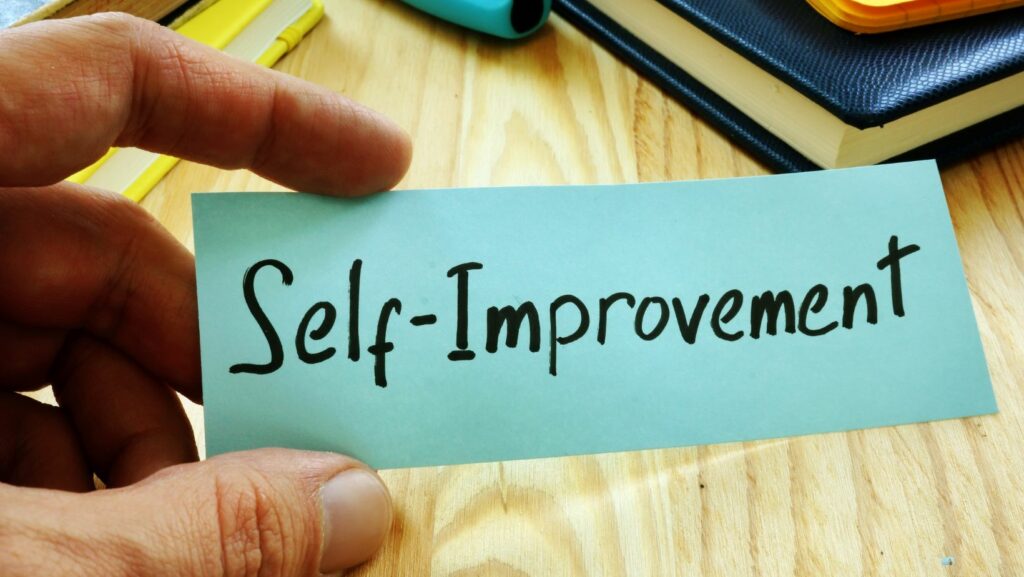In today’s fast-paced world, self-improvement is not just a goal but a necessity for many striving to enhance their personal and professional lives. With technology at our fingertips, a plethora of apps and QR codes promise to guide us on this journey of enhancement and growth. These apps cover a wide range of areas, from productivity and mindfulness to fitness and lifelong learning, each designed to help users become the best version of themselves.
Self Improvement Apps
 Self-improvement apps are digital tools designed for enhancing personal growth, well-being, and productivity. They cater to diverse areas such as mental health, physical fitness, and educational skills, thereby supporting users in their pursuit of a better quality of life.
Self-improvement apps are digital tools designed for enhancing personal growth, well-being, and productivity. They cater to diverse areas such as mental health, physical fitness, and educational skills, thereby supporting users in their pursuit of a better quality of life.
Self-improvement apps serve functions ranging from time management and focus enhancement to stress reduction and health optimization. These apps often employ gamification to motivate users and incorporate various technologies such as AI to personalize user experiences. Examples of popular self-improvement apps include Headspace for mindfulness, MyFitnessPal for health tracking, and Duolingo for language learning. Each app aims to provide practical solutions and structures to everyday challenges, enhancing both personal and professional aspects of users’ lives.
The Science Behind Habit-Forming Apps
The efficacy of habit-forming apps rests on the principles of behavioral psychology. These apps use techniques such as cues, rewards, and repetition to encourage the formation and maintenance of new habits. By sending reminders and providing feedback, they create a system of instant gratification and long-term rewards, which are critical for habit formation. Research indicates that the average time to form a habit is 66 days, and successful habit-forming apps are designed to support the user throughout this period and beyond, making them essential tools for sustained self-improvement.
Top Features of Effective Self-Improvement Apps
Self-improvement apps offer a range of features designed to enhance personal growth and productivity. They integrate advanced technologies and psychological strategies to cater to individual needs.
Goal Setting and Tracking
 Effective self-implementation apps provide robust tools for setting and monitoring progress toward specific objectives. Users can define their goals, whether they aim to improve mental health, elevate physical fitness, or acquire new skills. The apps often use step-by-step milestone markers that visually demonstrate progress. For instance, a user wanting to learn a new language might see a daily streak feature, encouraging consistent practice to build proficiency over time, aligning with the psychological principle that it takes 66 days to form a new habit.
Effective self-implementation apps provide robust tools for setting and monitoring progress toward specific objectives. Users can define their goals, whether they aim to improve mental health, elevate physical fitness, or acquire new skills. The apps often use step-by-step milestone markers that visually demonstrate progress. For instance, a user wanting to learn a new language might see a daily streak feature, encouraging consistent practice to build proficiency over time, aligning with the psychological principle that it takes 66 days to form a new habit.
Personalized Feedback Mechanisms
Personalized feedback is pivotal in self-improvement apps. Leveraging artificial intelligence, these applications analyze user data to provide tailored advice and encouragement. By examining patterns in behavior, the apps deliver insights that are specific to the user’s activity and progress. If a user consistently meets their fitness goals, the app may recommend more challenging workouts, recognizing their advancement and fostering further growth.
Integration With Everyday Tech
 The best self-implementation apps seamlessly integrate with other technology, enhancing the user experience and accessibility. They commonly synchronize with wearables like smartwatches or integrate with other health-related apps, sharing data to provide a more comprehensive view of a user’s lifestyle and health metrics. This integration allows users to manage their time efficiently, receive timely notifications, and maintain motivation without needing to switch between multiple platforms. For example, calendar integrations help users schedule reminders for meditation or workouts directly, simplifying how they incorporate self-improvement activities into their daily routine.
The best self-implementation apps seamlessly integrate with other technology, enhancing the user experience and accessibility. They commonly synchronize with wearables like smartwatches or integrate with other health-related apps, sharing data to provide a more comprehensive view of a user’s lifestyle and health metrics. This integration allows users to manage their time efficiently, receive timely notifications, and maintain motivation without needing to switch between multiple platforms. For example, calendar integrations help users schedule reminders for meditation or workouts directly, simplifying how they incorporate self-improvement activities into their daily routine.
Benefits of Using Self-Improvement Apps
Self-improvement apps enhance daily productivity by integrating seamlessly into users’ routines. Users benefit from structured goal-setting features, enabling the formation of clear, actionable objectives. By setting precise targets, individuals can monitor their progress and stay motivated through visual representations like graphs and achievement badges.
These apps boost mental wellness through tailored exercises and activities. Features may include guided meditations, cognitive behavioral therapy techniques, and stress management tools, all designed to foster mental resilience and contribute to overall emotional stability.
Enhanced learning and skill development are significant advantages of using self-imvement apps. They provide access to a range of educational materials and interactive modules to master new skills or languages, thus expanding user capabilities and enhancing career opportunities.
Integration with health and fitness trackers helps maintain physical health, which is crucial for overall well-being.

